
HOW SHOULD I CLEAN MY BRUSHES?
This depends on your medium of choice. Watercolour is the easiest paint to remove – you simply rinse your dirty brushes under a gently running tap until the water runs clear. An optional step after this is to lather up some soap in your hands and softly wipe the brushes across your palm. Rinse thoroughly afterwards and finish by squeezing all the water out and reshaping the brush heads.
WHAT IF I’M USING ACRYLIC PAINTS?
Acrylics require a bit more care. “Acrylic is a glue and, if brushes aren’t cleaned properly, it will harden on the bristles and fibres and bound them together,” explains Symi Jackson of brush manufacturer Rosemary & Co.
The key is to remove acrylic before it dries, either with a rag or kitchen roll, then follow the steps outlined above. Symi recommends using synthetic brushes when painting with acrylic, as they are more forgiving than brushes with natural hairs.
ARE BRUSHES USED WITH OILS HARDER TO CLEAN?
Yes, but only because a solvent is needed. After wiping off excess paint, swirl the brushes around in a jar of solvent to loosen any pigments, resins and mediums. Then wash with soap until the suds are totally white before rinsing all the bubbles out so no soap residue is left on the brush.
WHAT SOLVENT SHOULD I USE?
Traditionally, solvents like turpentine or white spirit (also known as mineral spirits) are used to remove oil paint from brushes but, as many of you know, these emit potent fumes.
Bu hikaye Artists & Illustrators dergisinin November 2020 sayısından alınmıştır.
Start your 7-day Magzter GOLD free trial to access thousands of curated premium stories, and 9,000+ magazines and newspapers.
Already a subscriber ? Giriş Yap
Bu hikaye Artists & Illustrators dergisinin November 2020 sayısından alınmıştır.
Start your 7-day Magzter GOLD free trial to access thousands of curated premium stories, and 9,000+ magazines and newspapers.
Already a subscriber? Giriş Yap

Still life IN 3 HOURS
Former BP Portrait Award runner-up FELICIA FORTE guides you through a simple, structured approach to painting alla prima that tackles dark, average and light colours in turn
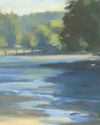
Movement in composition
Through an analysis of three masterworks, landscape painter and noted author MITCHELL ALBALA shows how you can animate landscape composition with movement
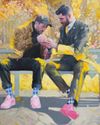
Shane Berkery
The Irish-Japanese artist talks to REBECCA BRADBURY about the innovative concepts and original colour combinations he brings to his figurative oil paintings from his Dublin garden studio

The Working Artist
Something old, something new... Our columnist LAURA BOSWELL has expert advice for balancing fresh ideas with completing half-finished work
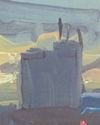
Washes AND GLAZES
Art Academy’s ROB PEPPER introduces an in-depth guide to incorporating various techniques into your next masterpiece. Artwork by STAN MILLER, CHRIS ROBINSON and MICHELE ILLING

Hands
LAURA SMITH continues her new four-part series, which encourages you to draw elements of old master paintings, and this month’s focus is on capturing hands

Vincent van Gogh
To celebrate The Courtauld’s forthcoming landmark display of the troubled Dutch master’s self-portraits, STEVE PILL looks at the stories behind 10 of the most dramatic works on display
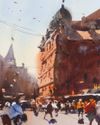
BRING THE drama
Join international watercolour maestro ALVARO CASTAGNET in London’s West End to paint a dramatic street scene
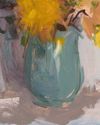
Serena Rowe
The Scottish painter tells STEVE PILL why time is precious, why emotional responses to colour are useful, and how she finds focus every day with the help of her studio wall

Bill Jacklin
Chatting over Zoom as he recovers from appendicitis, the Royal Academician tells STEVE PILL about classic scrapes in New York and his recent experiments with illustration